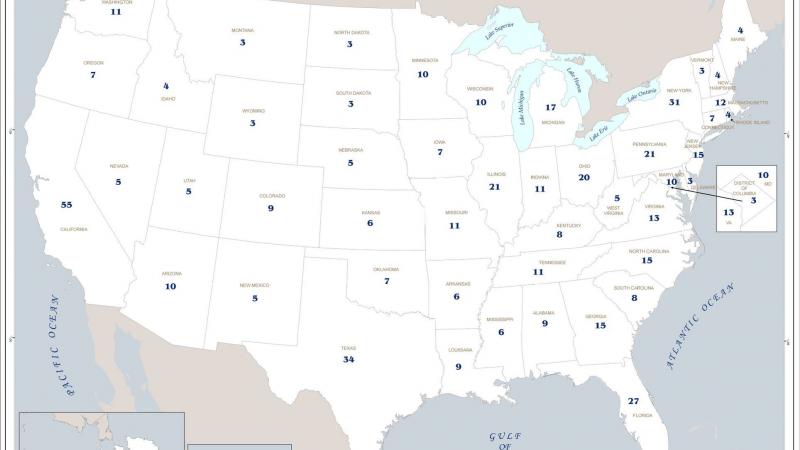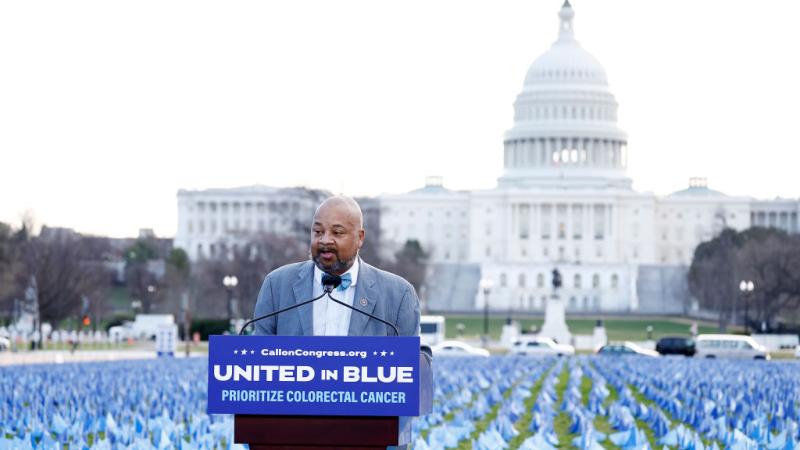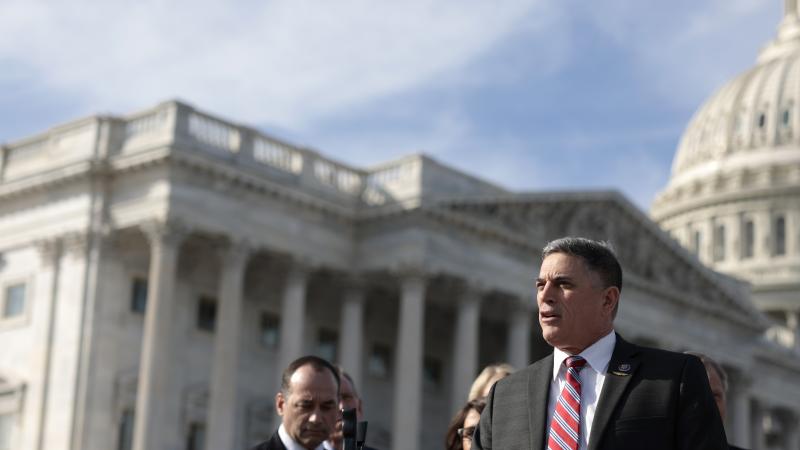Google's kryptonite? Law prof tests obscure DC legal path to remedy alleged bias against GOP emails
John Banzhaf has filed complaint against tech giant with D.C. Office of Human Rights claiming mass-blocking RNC emails constitutes "unlawful discrimination based upon political affiliation," denial of "full and equal enjoyment" of Gmail services.
As Google faces litigation and a Federal Election Commission (FEC) complaint for allegedly sending nearly all Republican National Committee emails to Gmail spam folders, a tiny municipal agency in Washington, D.C. could pose a more immediate problem for the Silicon Valley behemoth.
A veteran public interest law professor known for his antismoking and "potty parity" legal crusades has filed a complaint against Google with the D.C. Office of Human Rights (OHR), alleging that mass-blocking RNC emails constitutes "unlawful discrimination based upon political affiliation" and denial of the "full and equal enjoyment" of Google's Gmail services.
The complaint by George Washington University's John Banzhaf says he's filed more than 100 successful complaints under the D.C. Human Rights Act, which does not require complainants to be "aggrieved" themselves and offers damages and attorney's fees for violations.
The D.C. law does not require a "place of public accommodation" to maintain a "physical location in the District" or even charge for its services, if it provides them to a person in D.C. That covers Google, which also "maintains a massive and expensive physical lobbying presence in the District," according to the complaint.
Crucially, the law also does not require complainants to show discriminatory intent. The statute prohibits "any practice which has the effect or consequence" of discrimination, which means even "a completely unexpected result of the programming and/or system design" can trigger liability, the complaint says.
"Thus neither I as the complainant, nor the agency, has to discover, much less prove, why the discrimination is occurring" in Gmail, which "might be very difficult to do given the complexity of the email filtering mechanism and the technical sophistication of Google," Banzhaf wrote in an email.
He and his law students have had an "amazing string of successes" in OHR complaints going after sex discrimination in dry cleaning, hairdressing and "ladies night" promotions as well as racial and disability complaints, he told Just the News.
The dry-cleaning complaint against charging more for women's garments, which acknowledged such garments may cost more to treat because they tend to have more fabric, nonetheless "helped to eliminate this discriminatory practice in many other jurisdictions," Banzhaf said.
He believes the Google OHR complaint could set a nationwide precedent as well and expose Google's spam filtering practices faster than litigation.
"Even if the various emails were only 'throttled' to recipients within the District, the effect could still be profound and very important because so many influential people receive their emails in the District," the complaint reads. Whether it investigates or refuses to do so, OHR's action "could have profound effects on many different elections."
The RNC's federal lawsuit in California alleges Google is "intentionally" and "suspiciously" sending its fundraising and other emails to spam folders only in the last few days of each month, "historically when the RNC’s fundraising is most successful." The "inboxing rate" for those emails approaches zero, in contrast to emails sent to Yahoo and Microsoft inboxes, it says.
The suit also cites a North Carolina State University study, published in a peer-reviewed computer science journal, that found Gmail had the widest disparity in treatment of Republican and Democratic candidates: Only 8% of Democratic emails got caught in spam filters, compared to 68% of GOP emails.
The study was invoked in the RNC's joint FEC complaint this spring with the Republican House and Senate campaign committees, which alleges Google's behavior constitutes illegal in-kind contributions to Democratic candidates.
"Gmail's disparity increased as Election Day neared," and "Gmail continued to mark Republican emails as spam even after users opened and read similar messages," their April complaint says.
"As we have repeatedly said, we simply don't filter emails based on political affiliation," Google spokesperson Jose Castaneda told the Associated Press. "Gmail's spam filters reflect users' actions."
While he couldn't offer documentation that OHR had opened an investigation, Banzhaf told Just the News the office by law "investigates all complaints which meet a few very basic requirements" and has investigated every complaint he has filed.
"All of the complaints that come before OHR are 100% confidential," an unidentified OHR spokesperson wrote in an email, declining to confirm an investigation.
The spokesperson pointed to its standard operating procedures, which explain that OHR will schedule an "intake interview" with the complainant if it determines it has jurisdiction, draft a "charge of discrimination" and assign a docket number, and schedule the parties for mediation. If agreement can't be reached, the office will launch a full investigation.
Banzhaf's complaint references the lawsuit's allegations, which invoke California laws as well as the federal Telecommunications Act, and the FEC complaint. But he's skeptical that those methods of redress will bear timely fruit for the RNC.
Democratic commissioners on the FEC, which is evenly split politically by law, could stop an investigation, and Google's lawyers can probably stall the federal lawsuit and force the RNC to prove discriminatory intent, he said.
"Due to the confidentiality requirements surrounding the enforcement process," the FEC can't confirm whether it has even opened an investigation "until after the matter has been resolved," press officer Judith Ingram told Just the News. She pointed to its guidebook that lays out the timeline for investigations.
The RNC's lawyers at the Dhillon Law Group didn't answer queries on Banzhaf's appraisal of its lawsuit. Google didn't respond when asked for its response to the complaint.
The Facts Inside Our Reporter's Notebook
Documents
Videos
Links
- sending nearly all Republican National Committee emails to Gmail spam folders
- "potty parity" legal crusades
- D.C. Human Rights Act
- dry cleaning
- hairdressing
- "ladies night" promotions
- RNC's federal lawsuit
- North Carolina State University study
- peer-reviewed computer science journal
- RNC's joint FEC complaint
- Associated Press
- guidebook














